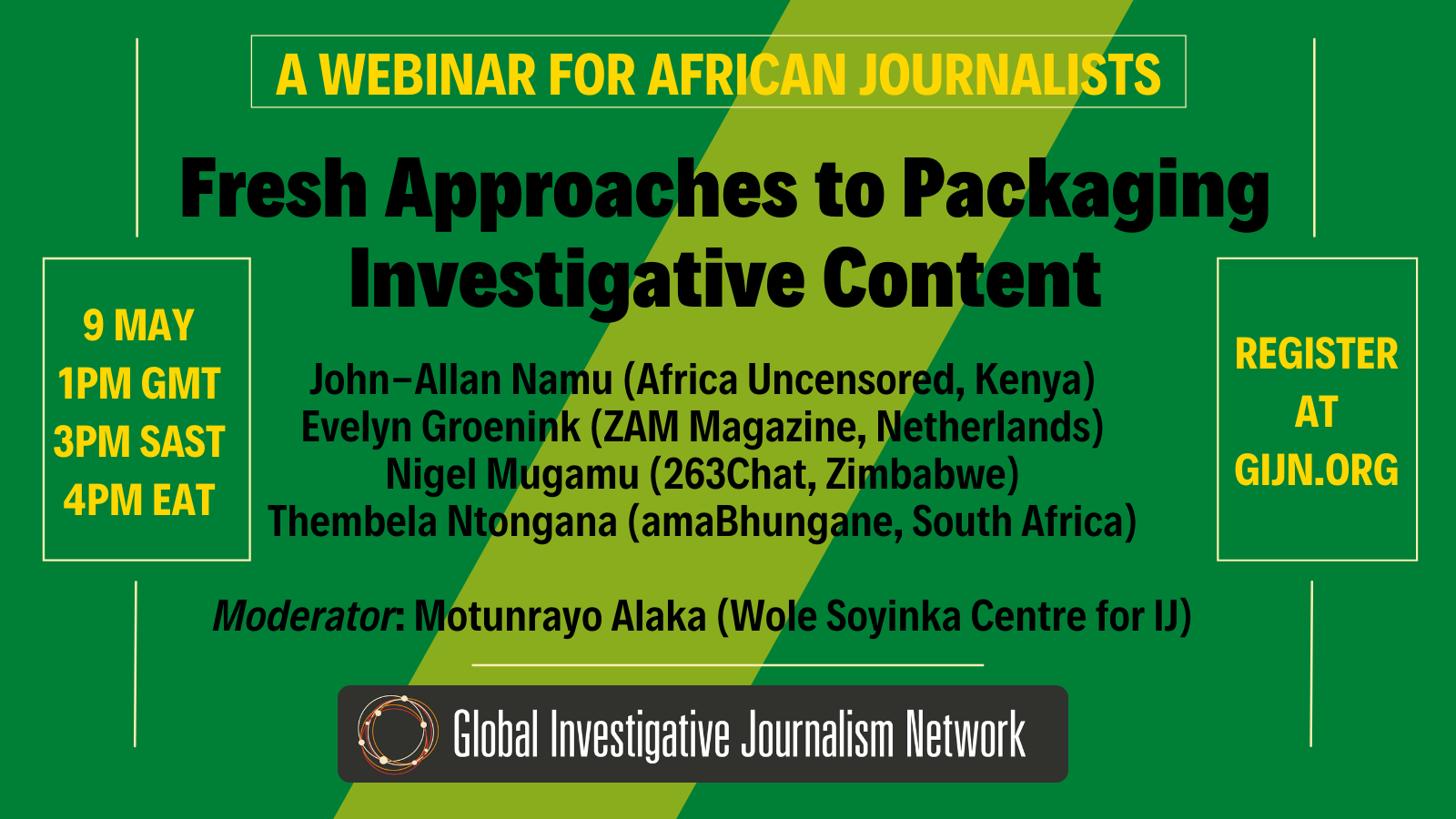Investigative journalism involves systematic, in-depth, and original research and reporting, often unearthing secrets that powerful people want to keep hidden. It usually employs heavy use of public records and data, with a focus on social justice and accountability. It’s challenging, and at the same time the media has to present its investigations in such a way that it is compelling to the public — which adds to the challenge.
In an article published by GIJN in 2018, Botswana journalist and co-founder of the Gaborone-based INK Centre for Investigative Journalism, Ntibinyane Ntibinyane, lamented that otherwise high quality investigative stories by African media can often be convoluted and unappealing to the public. “Stories need to be packaged better,” he wrote and made fourteen recommendations that could help change the way investigative journalism is done in Africa.
Since then, there have been improvements. Some African journalism organizations are finding better ways to package their investigative content to encourage greater engagement from increasingly tech-savvy audiences. GIJN is pleased to host a webinar to discuss fresh approaches to packaging and distributing investigative stories.
In this online webinar, free to all journalists across Africa and beyond, GIJN brings together four senior journalists who will discuss how their organizations have used available platforms and other ways to reach new and wider audiences, and they will share the tools they have created to distribute or repackage investigative content.
The speakers are:
John-Allan Namu, Co-Founder and CEO, Africa Uncensored, Kenya
Evelyn Groenink, Investigations Editor, ZAM Magazine, Netherlands
Nigel Mugamu, Chief Storyteller, 263Chat, Zimbabwe
Thembela Ntongana, Digital Coordinator, amaBhungane, South Africa
Moderator: Motunrayo Alaka, Executive Director, Wole Soyinka Centre for Investigative Journalism, Nigeria.
Sign up for the webinar here!
Date: Monday, 9 May 2022
Time: What time is it in my city?
13:00 (Accra, Monrovia, Freetown)
14:00 (Lagos, Kinshasa, Tunis)
15:00 (Johannesburg, Harare, Tripoli)
16:00 (Kampala, Addis Ababa, Nairobi)
Watch our Twitter feed @gijnAfrica and monthly Africa newsletter for details on future events.


The webninar will assist me to sharpen investigative skills on Health and Social issues which is beat I have been assigned to at the Lesotho Times and Sunday Express newspapers.
This is the only way we can improve on our investigative reporting
Thanks so much for such an initiative.through this we the young journalist can learn better skills.